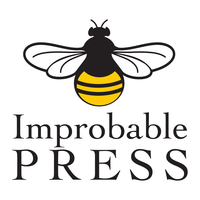Improbable Press' submission guidelines used to ask for works about differently-abled characters.
That phrase, differently-abled, was mine and with it I wanted to include my friend with almost-daily migraines, a person with chronic anxiety or depression, as well as people in wheelchairs or with limb differences.
Disabled Fiction, Differently-Abled Fiction…Or?
The thing is, I didn't research at all what phrasing was appropriate, and I did not ask disabled people for their thoughts on the phrasing, and then a disabled woman kindly dropped me an email to tell me that overall, disabled people use the word disabled.
I did do some reading then, and asked other disabled people their thoughts, and I learned that while it's often not possible to include every inclusive phrase, well the ones we're already including—like differently-abled—absolutely should be replaced with something better.
Words have weight because they mean something. We can move one another with our words, so it makes sense to use the right ones. We don't always know them but once we do, it's important to use them, especially when we're talking about people who too often don't get heard.
Disability in Fiction
IP wants to tell the stories of characters about whom we don't read enough.
So if you've got a great story of adventure, science fiction, contemporary supernatural, or romance with a disabled character or characters, have a look at our Improbable Press' submission guidelines to see if it'll suit us, then send it to us!
And because we're going to be updating this blog often in the new year, we'd love it if you also sent us links to your own blog if you think a topics suits, or share URLs to things you think is interesting for writers and fandoms.
Happy new year!
Some of my reading:
* How "Differently Abled" Marginalizes Disabled People
* 4 Disability Euphemisms That Need to Bite the Dust
* Respectful Disability Language
